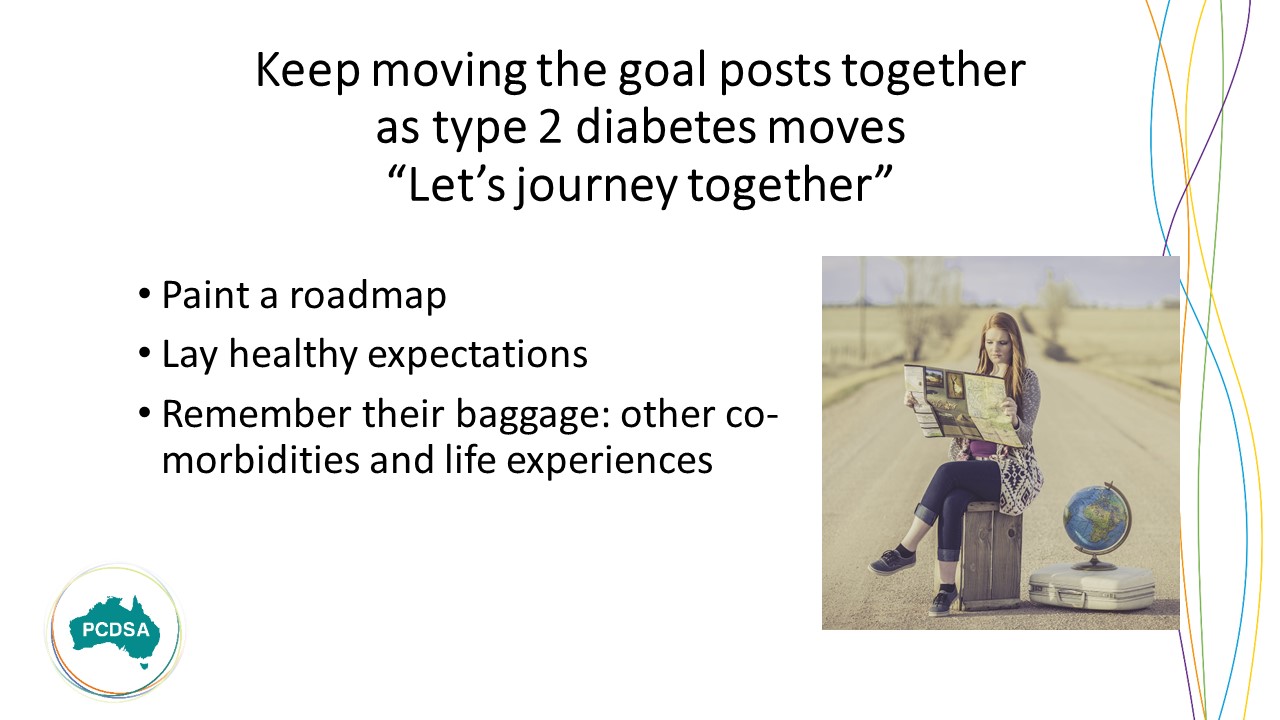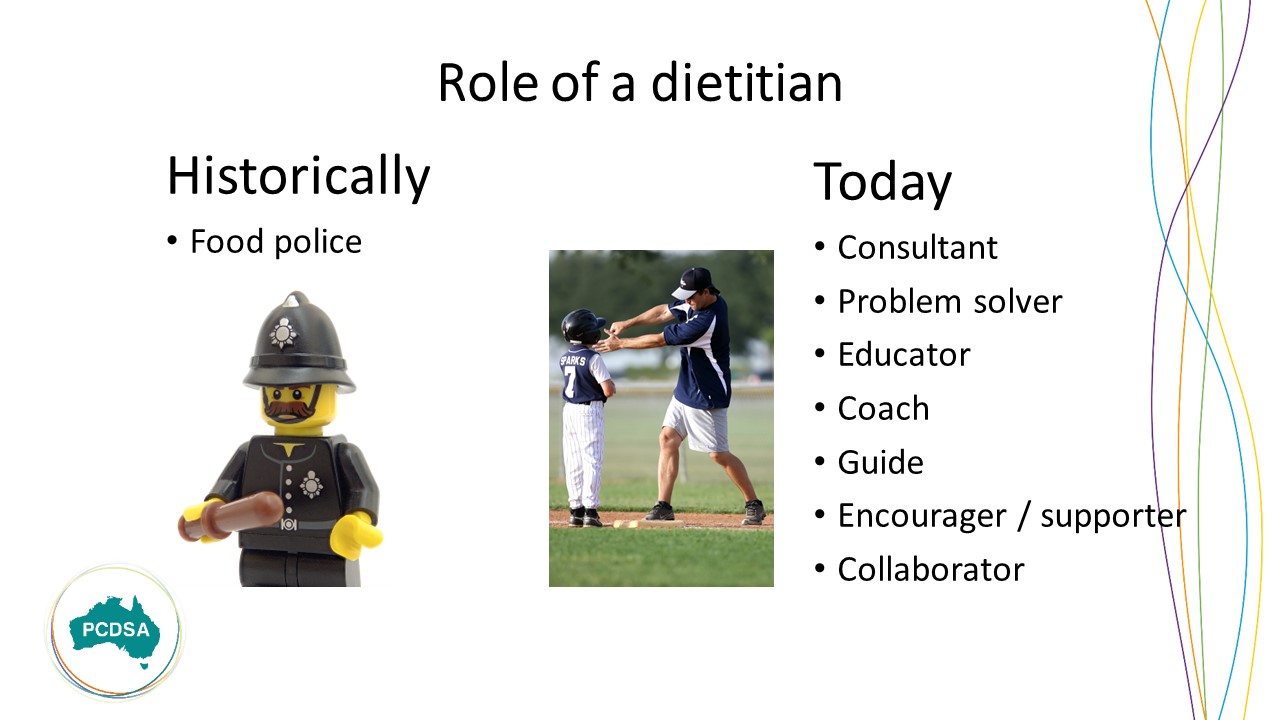Type 2 diabetes: assessment and planning of care by Ivan Chan, APD
 Anthea Talliopoulos
Anthea Talliopoulos
In assisting clients living with type 2 diabetes, it is crucial that we integrate client-centred care, meeting the client where they are at and equipping them with self-management and self-care strategies. As clinicians, our default mindset may be to aim to ‘fix’ conditions, although the practical implications of this are often limited. In addition to this, the complexity and pathophysiology of type 2 diabetes may also mean that clients can be doing everything within their control to manage the conditions, and yet their HbA1C may still be elevated. Beyond the physical control of type 2 diabetes, diabetes distress should also be considered, which can impact on self-efficacy, medication-taking behaviours, as well as dietary and exercise behaviours.
In this informative presentation, Accredited Practising Dietitian Ivan Chan delves into the assessment and management of individuals living with type 2 diabetes. He explains the implementation of medical nutrition therapy, including the key nutrition outcomes, goals, and the unpacking of person-centred care. Ivan explains the role of us as clinicians is to act as a collaborator, encourager and supporter, guiding the client to identify and work through the barriers and enablers impacting on the management of the condition. He also outlines the importance of addressing client expectations, correcting misinformation, individualising targets, and setting concise and achievable action plans. Multidisciplinary care, client advocation and ongoing monitoring are also key elements to consider in assisting clients to meet their goals.
Overall, diabetes management is by no means a ‘one size fits all approach’, and should be tailored in accordance with the client’s needs and goals, in communication with other treating professionals, to focus on long-term and sustainable dietary changes.
Summary:
- While nutrition can have a significant impact on glycaemic control, is it crucial that a holistic assessment is conducted to uncover and work through the barriers and enablers impacting on the client.
- Diabetes distress should be considered and screened for as this can sometimes be skipped over and can have a significant impact on client care and outcomes. Valid screening tools such as the Problem Areas in Diabetes Questionnaire (PAID scale) can be integrated into client assessment.
- Diabetes phenotypes and client ethnicity can impact on the pathophysiology and ideal medication action.
- Multidisciplinary care, including referring on, as well as open communication with both the client and the diabetes team, can ensure that a holistic focus integrated in assisting the client in meeting their needs.
Ivan Chan is an Accredited Practising Dietitian who works both at Eastern Access Community Health (EACH), previously Knox Community Health Service, east of Melbourne and Diabetes Victoria. Originating from Western Australia, Ivan has worked in rural and urban dietetics as well as in clinical, community health and private practice settings. Ivan is a Board Member with the Primary Care Diabetes Society of Australia.
Having a keen interest in both type 1 and type 2 diabetes, Ivan enjoys working collaboratively with other health professionals to deliver holistic care. For people with diabetes and different, often complex needs, he loves to support and empower them to find sustainable lifestyle changes, especially as their diabetes progresses and their management needs evolve.
To register for the presentation and associated documents, including the assessment quiz click here
You may also be interested in our other presentations on type 2 diabetes which are listed here

